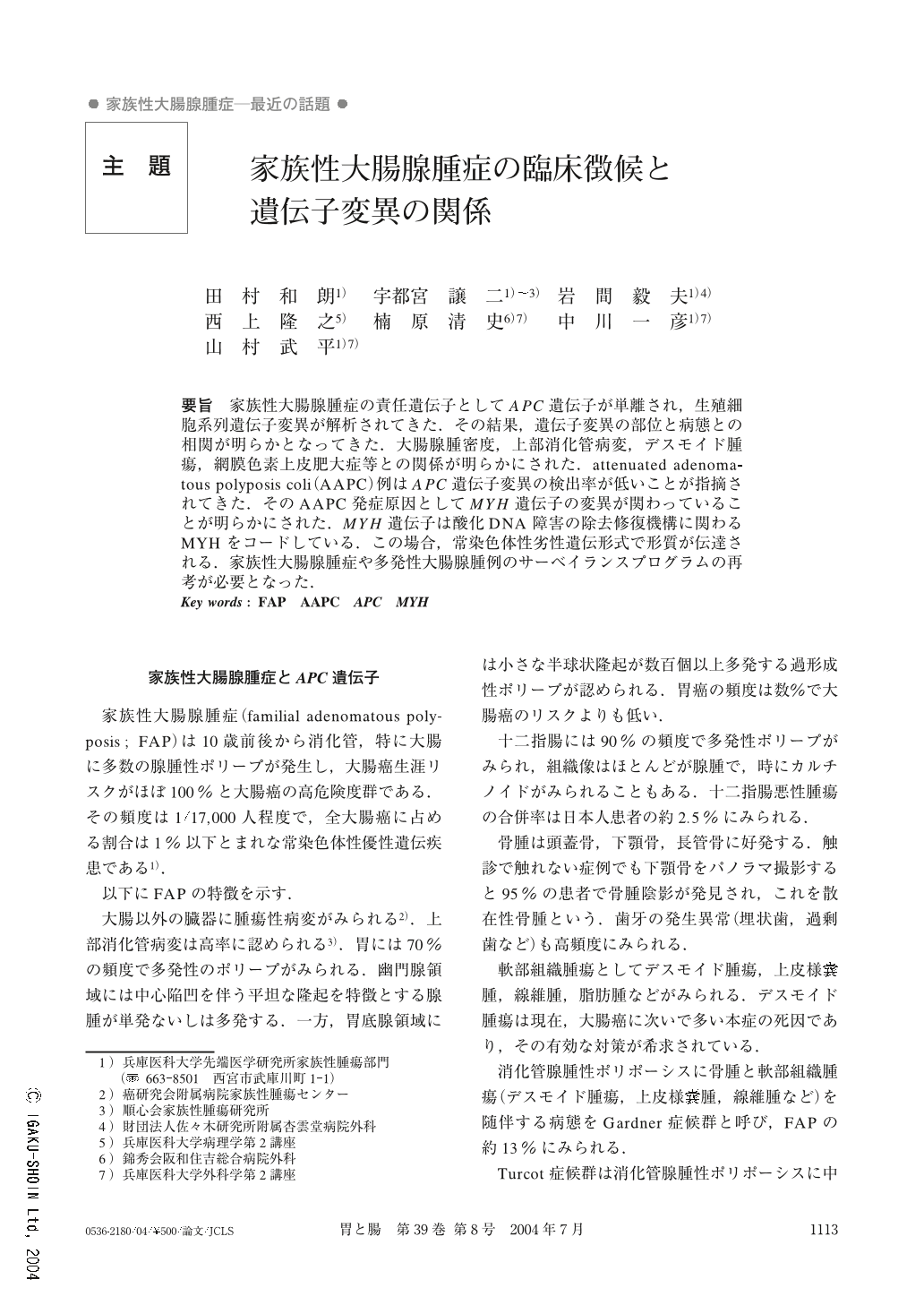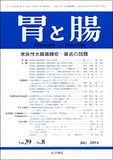Japanese
English
- 有料閲覧
- Abstract 文献概要
- 1ページ目 Look Inside
- 参考文献 Reference
要旨 家族性大腸腺腫症の責任遺伝子としてAPC遺伝子が単離され,生殖細胞系列遺伝子変異が解析されてきた.その結果,遺伝子変異の部位と病態との相関が明らかとなってきた.大腸腺腫密度,上部消化管病変,デスモイド腫瘍,網膜色素上皮肥大症等との関係が明らかにされた.attenuated adenomatous polyposis coli(AAPC)例はAPC遺伝子変異の検出率が低いことが指摘されてきた.そのAAPC発症原因としてMYH遺伝子の変異が関わっていることが明らかにされた.MYH遺伝子は酸化DNA障害の除去修復機構に関わるMYHをコードしている.この場合,常染色体性劣性遺伝形式で形質が伝達される.家族性大腸腺腫症や多発性大腸腺腫例のサーベイランスプログラムの再考が必要となった.
The APC gene was isolated as a responsible gene of familial adenomatous polyposis (FAP) in 1991. In addition to this, germline mutations of the APC gene have been analyzed in many patients with FAP. As a result, genotype-phenotype correlation between the APC and FAP have been elucidated gradually. The sites of the APC germline mutation have a relationship with adenoma density of the large bowel, polyps of the upper gastrointestinal tract, desmoid tumor, and congenital hypertrophy of the pigment epithelium. These pieces of information are significant for the management of patients and family members with FAP. It is known that in attenuated adenomatous polyposis coli (AAPC) cases it is hard to detect alterations of the APC.
However, recently, it was made clear that biallelic mutations of the MYH gene, which is located in the short arm of human chromosome 1 and encodes the MYH molecule, cause AAPC. MYH is a pivotal molecule of the base excision repair system against DNA-alterations following oxidative DNA damage. The traits of a patient are inherited in an autosomal recessive manner. It is necessary in cases of patients with familial adenomatous polyposis and multiple colorectal adenomas to reconsider the conventional surveillance program.
1) Laboratory of Hereditary Tumor, Institute for Advanced Medical Sciences, Hyogo College of Medicine, Nishinomiya, Japan
2) Familial Cancer Center, Japanese Foundation for the Cancer Research Hospital, Tokyo
3) Junshin Familial Tumor Institute, Tokyo
4) Department of Surgery, Kyoundo Hospital, Sasaki Institute, Tokyo
5) Department of Surgery, Hanwa-Sumiyoshi General Hospital, Osaka, Japan
6) Second Department of Pathology, Hyogo College of Medicine, Nishinomiya, Japan
7) Second Department of Surgery, Hyogo College of Medicine, Nishinomiya, Japan

Copyright © 2004, Igaku-Shoin Ltd. All rights reserved.


